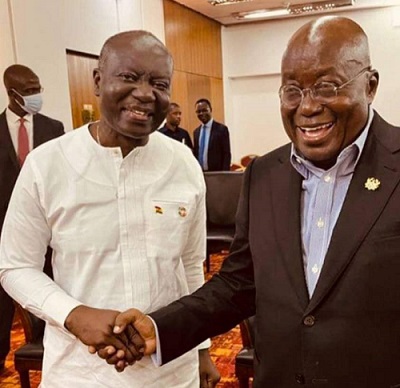
The International Monetary Fund (IMF) has approved Ghana’s request for a $3 billion bailout to support the debt-ridden West African nation’s economic recovery, according to people familiar with the matter.
The IMF’s Executive Board met to discuss approval for the funding on Wednesday and is scheduled to announce its decision later in the day. The IMF’s press office declined to comment.
Ghana’s cedi has become the world’s best performer against the dollar over the past six months as investors bet the nation was on the brink of securing the IMF funding. The currency traded 1.7% stronger at 10.8625 per dollar by 4:12 p.m. in Accra, Ghana’s capital. The country’s eurobond maturing in 2032 rose 0.5 cents to 40.2 cents on the dollar.
Ghana took tough economic decisions, including increasing taxes and imposing losses on domestic investors, to secure the package from the IMF. The fund’s backing came after the country last week clinched financial assurances from a bilateral-creditors group that’s co-chaired by China and France.
The three-year loan will help replenish Ghana’s foreign-exchange reserves, which have dropped almost 50% from a peak in August 2021 as the central bank used them to defend the cedi.
Fund Disbursements
Minister of State for Finance Mohammed Amin Adam said earlier this week the government expects to receive an initial disbursement of $600 million this week, and a further disbursement of the same amount in November. The remainder is likely to be disbursed in equal portions of $350 million every six months, subject to IMF reviews, he said.
The government is also in talks for an additional $900 million of budget support from the World Bank over a three-year period, even as it plans to start negotiations with eurobond holders to restructure $13 billion of debt owed to private investors.
Ghana is restructuring its debt under the Group of 20’s so-called Common Framework as part of measures to secure the IMF program. The mechanism seeks to improve coordination between the traditional Paris Club of sovereign creditors and new ones like China, now the biggest lender to emerging nations. Zambia and Ethiopia are also using the framework to try and revamp their liabilities after their economies were ravaged by the effects of the COVID pandemic and the Russian-Ukraine war.
Source: Bloomberg
